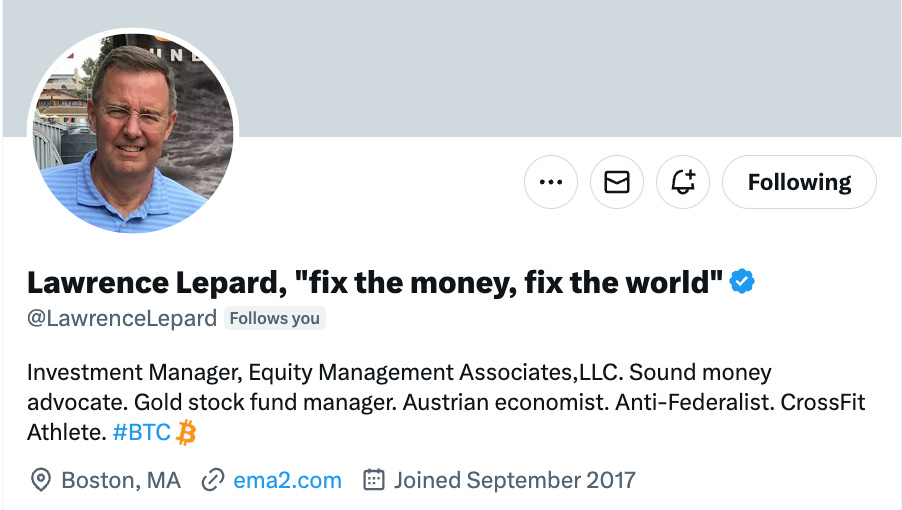
The world revolves around money. So much so, that each day we wake, scramble and bust out the door to get more of it. To collect it. All so that we can check our online balances and feel comfortable as the number grows larger.
But why?
When do we realize the true value of money? If money is the ultimate objective. Why then has money had many different forms throughout time? Why should we seek to gain more if we know that politicians will siphon it through tax and manmade laws?
At different points in history, money has been people, shells, stones, paper, gold, dollars, Bitcoin, and the list goes on. If money has been and will be many different things, what is the common denominator?
Faith. You see, if you break it down, faith is the only thing that truly backs money.
Without faith you have nothing. Faith is a deeply rooted conviction. Faith is where value is derived. Faith is money, money is not faith.
When money breaks down, faith is what leads us to find a better and less corrupt money.
For a specific unit to act as money it requires belief. It requires faith that someone else will accept it. And, that individual will do so because they believe numerous others will accept that unit as well.
Money is Proof Supported by a Chain of Beliefs
Digging deeper. What backs a dollar?
The taxing power of the government
What backs the US government’s taxing power?
The belief, through fear of jail, is that people will pay their taxes.
As you see, nothing tangible backs dollars. When you deconstruct the circular system, you find that faith and belief are all that really back dollars or any currency for that matter.
Globally, there is a belief that US citizens will pay their taxes because they always have. The truth, however, is that people in the US didn’t always pay taxes. The most productive period in the US was in the 1800s when taxes were not yet a thing. There were attempts at a tax in 1861 though it was repealed shortly after, and it was not until 1909 that taxes became official. With the creation of the Federal Reserve in 1913, taxes became the backer of money and it is when good money as we knew it, began its demise.
So, when you boil it down money is backed by faith.
Faith is the substance of things hoped for, the evidence of things not seen (Heb 11:1)
For this reason money changes when people’s faith breaks down. Where we put our faith determines where we find value.
Erosion of Values Signals Erosion of Money
When our values get off course our money eventually breaks down.
One could easily argue the value system of the global order is without question off-kilter. Not much in the way of headlines these days speaks of sanity. We don’t see corporations, leadership, celebrities, and the likes making decisions grounded by a moral compass.
The truth is, money is merely a tool. Instead of a hammer or a screwdriver, it is a unit that allows us to exchange value. Money is not the value, but how we express value. The items exchanged show where our faith and values lie.
Would good money not be a unit that allows exchange for items that improve our lives and communities? Would good money not be a unit that is not oppressive? Or, a unit that does not saddle its users with debt burdens and excessive tax?
If the purchasing power of money is eroding so fast that we need to spend it quickly in order to gain value, is this not a sign of bad money?
If our intention for money is to hoard it. It creates a system of benefitting only ourselves to the detriment of others and leads to an environment of high taxes, oppression, and division. Which ultimately leads to individuals exposing their systems of misplaced faith.
Is this not the true meaning behind “Fix The Money, Fix The World”?
The Intent of Money
The intent of man is not to collect money and race to a life of leisure. Those that do often find themselves at a loss for a sense of purpose. But rather, man was created and designed to work. To create value and to share out of the goodness of his talents. To share resources that his natural abilities allow him to give back.
The intent of money is to abide by the same laws of faith that guide man in order to give and create a better world than he came into.





